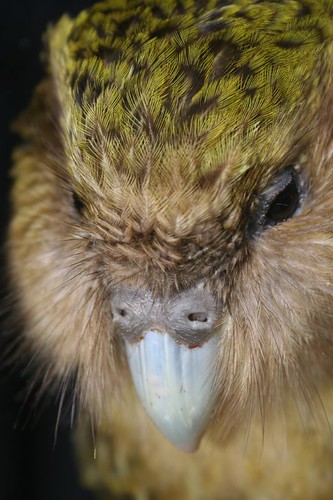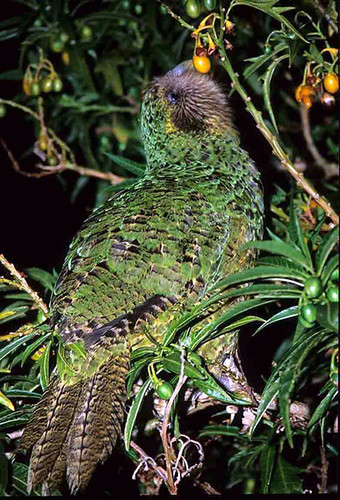Rare parrot survives lead poisoning
 Saturday, October 25, 2008 at 8:37
Saturday, October 25, 2008 at 8:37  After months of munching macadamias Sirocco the kākāpō conservation superstar has moved onto manuka. Photo: Chris Birmingham.AUCKLAND, New Zealand, Oct. 25 (UPI) -- A kakapo, a member of one of the rarest bird species on Earth, is to be released into the wild after being treated for lead poisoning at a New Zealand zoo.
After months of munching macadamias Sirocco the kākāpō conservation superstar has moved onto manuka. Photo: Chris Birmingham.AUCKLAND, New Zealand, Oct. 25 (UPI) -- A kakapo, a member of one of the rarest bird species on Earth, is to be released into the wild after being treated for lead poisoning at a New Zealand zoo.
 Strigops habroptilus - Kakapo | in
Strigops habroptilus - Kakapo | in  Conservation
Conservation 




